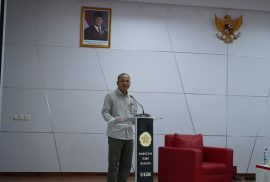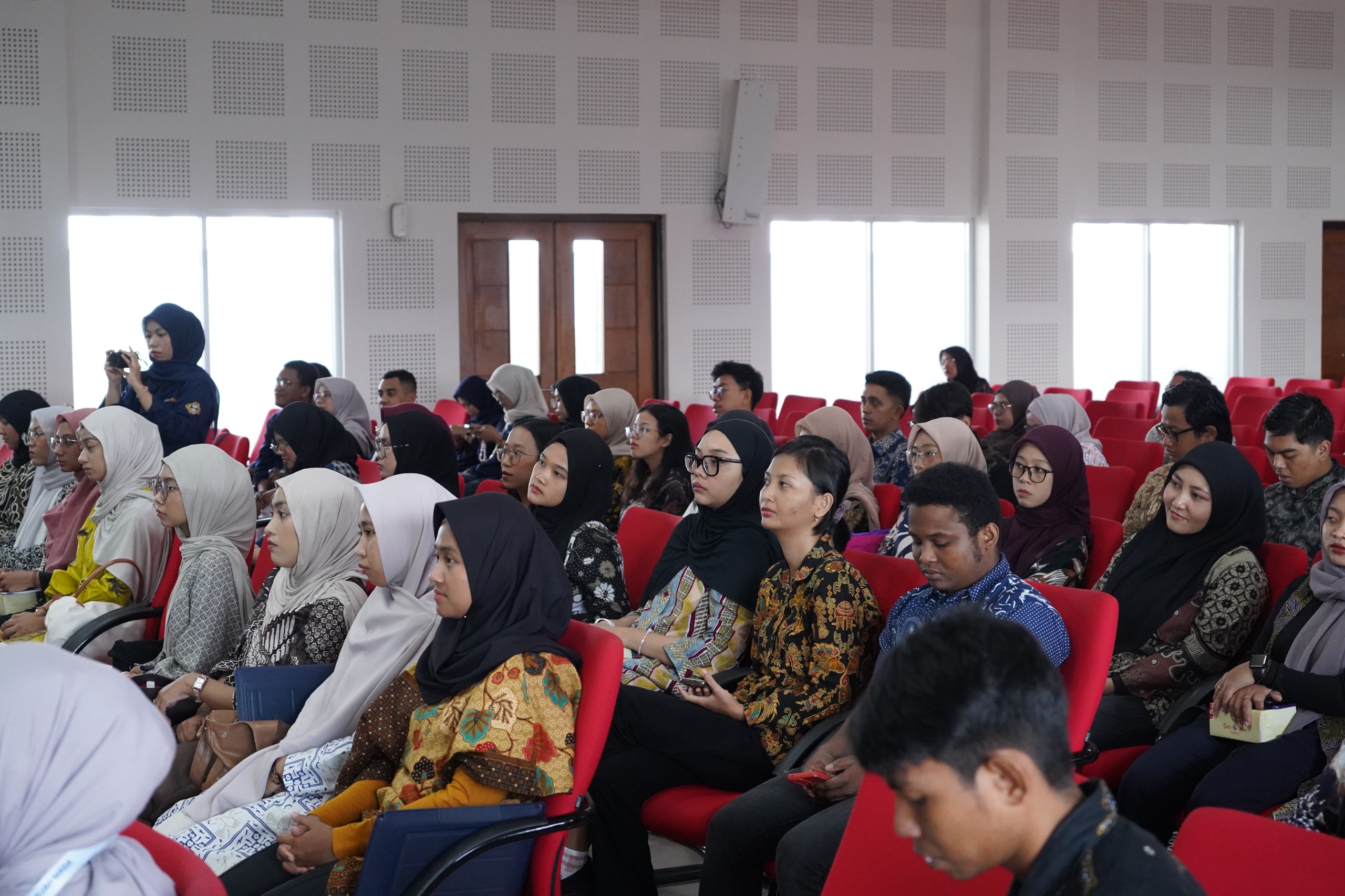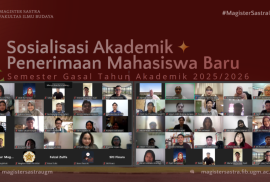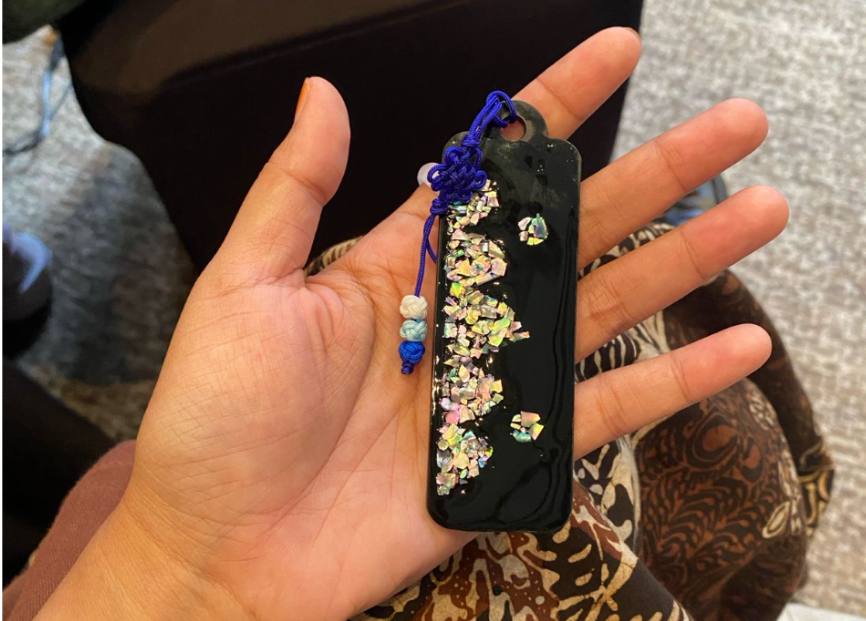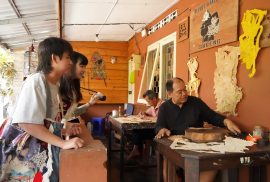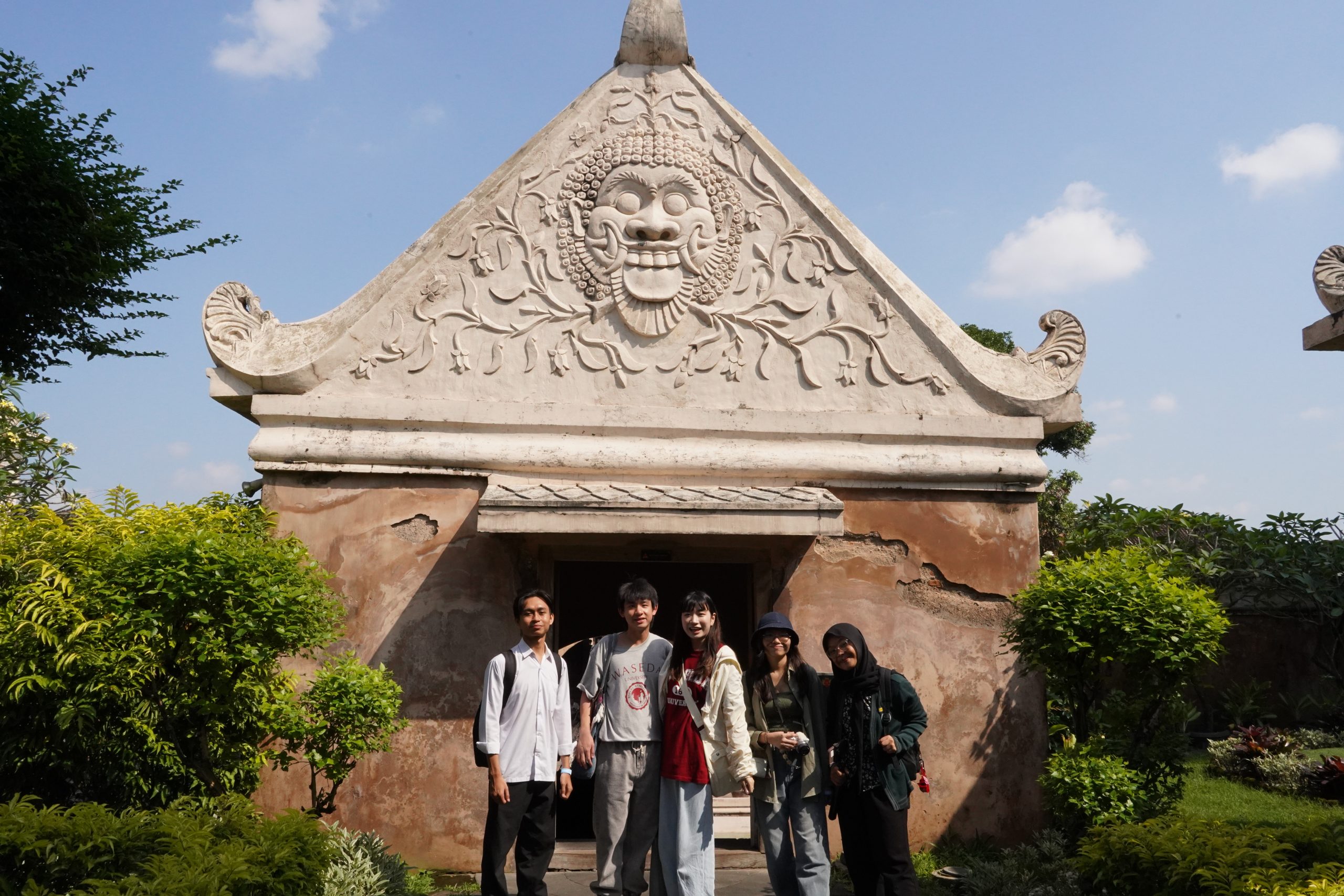Yogyakarta, 14/8/2025 – The Faculty of Cultural Sciences at Gadjah Mada University (FIB UGM) warmly welcomed new students of the Master’s Program in Linguistics for the academic year 2025/2026 through the Academic Forum & Students Gathering held on Thursday, August 14, 2025, at the Soegondo Auditorium, 7th floor of FIB UGM. This event marks the initial step for new students to familiarize themselves with the academic environment while fostering a sense of community.
The event commenced with participant registration, followed by speeches from the Committee Chair, the Chair of Kalingga 2024, and culminated in an official address and symbolic opening by the Head of the Linguistics Master’s Program, Prof. Dr. Suhandano, M.A. During this opportunity, he provided profound guidance that resonated with the participants.
Prof. Suhandano began by presenting an overview of the study program, particularly regarding the curriculum designed to be completed over four semesters. “In this session, we discuss the program or curriculum here, so that new students have an idea of what they need to do during their studies,” he stated. This explanation serves as a tangible step to ensure that every student has access to quality and directed education, aligning with the Sustainable Development Goals (SDGs) of education in developing contexts.
Moreover, he emphasized the achievements attained by the Linguistics Master’s Program, which has received both superior accreditation and international accreditation. According to him, this achievement is the result of collaboration among faculty, educational staff, and students. “Let us continue, enhance, and maintain that collaboration together,” he encouraged with optimism. This aligns with efforts to improve the quality of higher education while expanding academic networks at the global level.
In his speech, Prof. Suhandano also revealed interesting data about the number of new students this year. A total of 71 individuals have registered and will be divided into two classes. “There are still some who have been accepted but are delaying registration, possibly waiting for scholarships,” he explained. More than half of the accepted students have received scholarships, which is a testament to the trust of scholarship providers in the quality of this study program. This achievement also reflects the equitable opportunity for learning without discrimination based on background.
The atmosphere became even warmer during the student introduction session. One of the standout moments was when an international student named Kenneth from Madagascar introduced himself. The significant geographical distance serves as evidence that the Linguistics Master’s Program at UGM has become a cross-border study choice, contributing to the strengthening of diversity and global collaboration.
With the motivational address from the Head of the Program, the series of activities continued with academic information sessions, concentration discussions, and various community-building activities. Through this event, new students not only gained academic understanding but also experienced the familial atmosphere that characterizes FIB UGM—an auspicious beginning aligned with the mission of creating inclusive, quality, and internationally competitive education.
The orientation activities also included workshops aimed at capacity building, equipping students with essential skills for their academic journey. These workshops are designed to enhance students’ competencies, ensuring they are well-prepared to face the challenges of their studies and future careers.
As the day progressed, students engaged in interactive sessions that encouraged collaboration and networking among peers. This initiative is part of FIB UGM’s commitment to fostering a supportive learning environment, which is crucial for personal and professional development in line with the SDGs.

